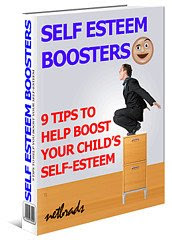
Every parent has a horror story from when their child threw a particularly powerful temper tantrum. Perhaps it occurred in the middle of a crowded grocery store or during a movie; wherever the tantrum took place, nothing can be more frustrating than trying to turn your son or daughter from a screaming child into a sweet angel again. Why exactly do temper tantrums take place, anyways?
Many child experts agree that young children use temper tantrums for different reasons, depending on their age range. Those children that are in their infancy and early toddler years often have difficulty in expressing their exact feelings, like how hungry they are, if they're in pain or if they just need a nap; so instead, they vent their frustration through tears. Older children, having outgrown this particular developmental stage, use temper tantrums as a form of learned manipulation - since a parent has likely caved in to a temper tantrum in the past, the child now knows that he or she can have whatever they want after a few minutes of screaming.
So if you're ready to put an end to temper tantrums once and for all, just follow these easy and expert-approved steps!
1. When your child is in the midst of throwing a particularly loud temper tantrum, don't scold or discipline your child from afar. Instead, get down to eye level with your child and tell them that you'd like him or her to stop. By getting in your child's personal space, you become a more tangible force to be obeyed, rather than just a person in the distance. Continue doing this during temper tantrums and your child will soon learn that his or her behavior is unacceptable.
2. Try to distract your child by suggesting another activity. Often, temper tantrums are thrown when children are bored or frustrated with what they're doing at the present moment; by suggesting another activity, you'll take your child's mind off of his or her boredom and the temper tantrum altogether.
3. Identify why it is exactly that your child is throwing a temper tantrum. This is particularly useful to do, especially if your child is still in the developmental stage where he or she cannot properly express emotions and feelings. Is your child hungry? Tired? Thirsty? Figure out why your child is so upset and remedy the problem. However, one word of warning: do not apply this same logic to your child if he or she is throwing a tantrum due to wanting a toy or object: you'll only teach your child that he or she will be rewarded for bad behavior!
4. You may be able to avoid temper tantrums altogether if you get your child involved in day-to-day decision-making processes. For example, if your child usually throws a temper tantrum when getting dressed in the morning, ask him or her what clothes he'd like to wear for the day. Sure, your child may choose some interesting outfits, but many children throw tantrums when they're given no say. Relinquish a bit of control over the smaller stuff, and your child will be a sweet angel again.
As you can see, temper tantrums can happen for all sorts of reasons, so it's important to quickly identify what it is that set your child off. Basic emotions, like hunger, thirst and tiredness should be remedied; however, if you never want to experience a tantrum again, don't give in to other kinds of temper tantrums! Stay firm and consistent with your child, and he or she will soon realize that bad behavior will not be tolerated.
By: Gareth Williams




No comments:
Post a Comment